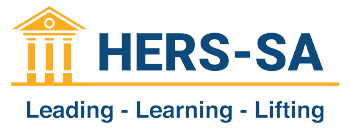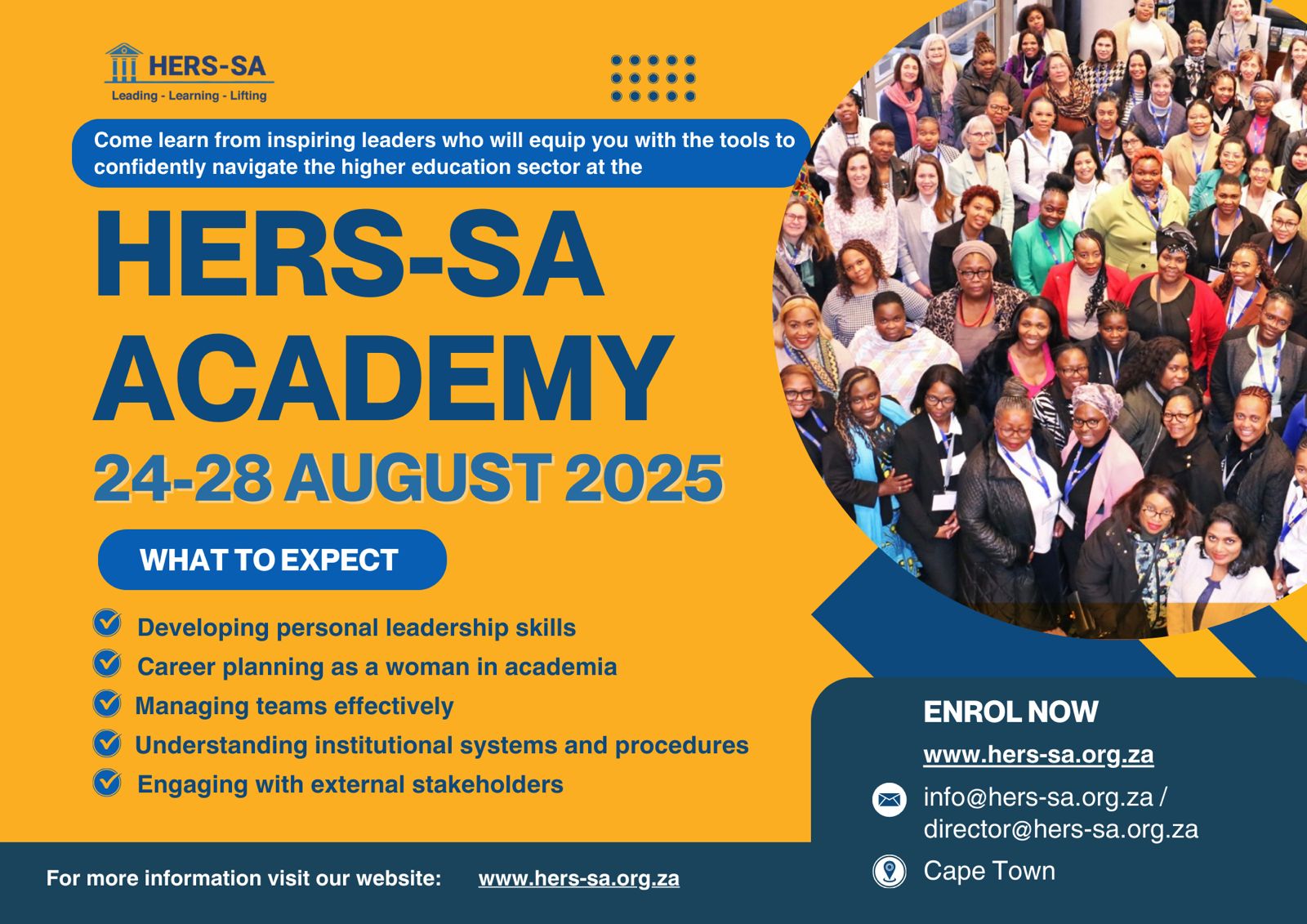TRAINING & DEVELOPMENT
Programmes
Professional Development
Principles of the
HERS-SA approach to professional development
Women only
Unless otherwise specified, HERS-SA professional development programmes are only available to women. Experience has shown that women’s groups settle down quickly and explore issues at a deep level when participants realise that their issues are taken seriously and significant support exists for them within the group. Some of the topics that emerge in discussions are gender-specific and require a secure environment for thorough exploration. The workshops are pro-women, not anti-men.
Self nomination
Holistic Approach
Confidentiality
Equality
Facilitators
Role Models
Ownership of content
Practical and participative
Networking
Collectively, the above elements are interwoven into all HERS-SA professional development interventions in the belief that a unique space is created for women in higher education to share and learn from each other in order to enrich their current working experiences, and prepare them to assume a greater role as thought leaders and change agents within the higher education sector.
Adapted from: Willis l and Daisley J (1992) Developing Women through Training McGraw-Hill, London)

